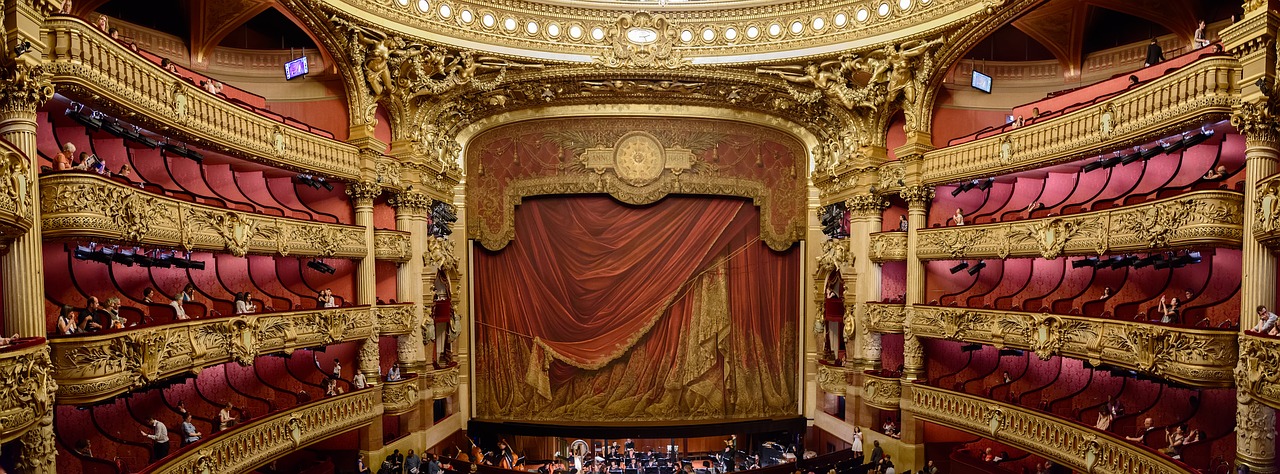This Week’s Insights: TV is failing except when it isn’t… Jazz’s “Netflix of” moment… Our digital commons is turning tragic… Where online criticism is thriving… Why 40 percent of Brits won’t try opera.
- TV By Any Other Name: Television’s current business model is unsustainable, and everyone knows it. It’s an audience thing. No one wants to watch in channel form anymore. We want what we want when we want it. And in some demographics, fewer than three in ten even own a TV. But is TV the way you get programming or is it the programming itself? Music and newspapers have both had to learn the distinctions. But the future present of video packaging and distribution is on-demand and digital. TV the platform simply cannot survive under its current business model.
- The Netflix of Jazz: How many business pitches start with “It’s the Netflix of…”? Now it’s Quincy Jones’ turn, and he’s pitching a subscription jazz service. Turns out the subscription model for niche culture is having a moment. Jones’ Qwest jazz service “resembles more boutique streaming platforms like Mubi, the art-film streaming service, or Boiler Room, an organization that archives its own underground-music concerts on its website.”
- The Tragic Commons: There was a tremendous sense of liberation in the early days of the internet, as more and more information got put online. The metaphor of a digital commons was often used to describe how information was shared. These days? That sense of liberation has turned somewhat darker, and social networks are at the center or it. “The digital commons fosters great communal benefits that go beyond being a publisher in the traditional sense. The fact that YouTube is open and free allows all kinds of creativity to flourish in ways that are not enabled by the entertainment industry. The tragedy is that it also empowers pornographers and propagandists for terror.”
- Where The Critics Are Thriving? Movie Trailers: Turns out there’s a robust genre of critiques of movie trailers. Some of the “trailer reaction” videos actually boast more views than the trailers they reference, meaning that, mathematically speaking, a significant portion of their audience watch the reaction but not the trailers to which the reaction is, um, reacting.
- Why Four In Ten Brits Will Not Go To The Opera: They don’t get it. They don’t understand it. And they think it is too hard to understand. “The survey, commissioned by [radio station] Classic FM, … explored reasons why people did not attend opera shows as well as general public opinion on the art form. …One in ten of the participants who had attended an opera performance in the past claimed that they ‘felt nervous, self-conscious and like they didn’t fit in’.” So a follow-up question: is it better to make opera more accessible or is it better to make more savvy audiences?

An excellent compendium of highlighted articles and the way they relate to each other. The Internet is such a valuable venue for alternative artists that it would be very unfortunate to see it become overly censored. I worry, however, that the greater threat is the corporatization of the Internet — an environment where the 800 pound gorillas become so strong that the smaller species are starved and go extinct. The loss of net neutrality would be one more step in this process of making the Net isomorphic with our larger plutocratic economy and political system.
Can one see a dumbing down of the Internet through the history of its methods of facilitating discussion? And has corporatization been responsable for this loss of dialog. There seems to have been three larger stages:
1. Email discussion groups in the 90s. They were often centered among academic professionals. They were extremely open and egalitarian since anyone could initiate a topic and there were no hierarchies. The discussion was among the most intelligent that ever happened on the Internet, even if many lists were eventually drug down by trolls. They are no longer a major part of Net dialog like they once were.
2. This evolved to blogs, where an owner makes statements, and where comments on it and dialog are given a secondary status, often in smaller, grayer print below advertising materials and other links. The spirit of dialog was inevitably reduced, even if many blogs were substantive. A spirit of narcissism evolved that turned away from dialog.
3. This was followed by the Facebookified Twitterverse where dialog was turned into a corporate product and with structures that would encourage a constant churning of brevity and superficiality to create maximum exposure for advertisements. The substantive and sustain dialog that existed in the 90s on a number of email lists seems a distant memory.
This no doubt oversimplifies the history, but the general framework might tell us something about how the Net is evolving. Anyway, thanks for AJ which has weathered these stages and remains a light.